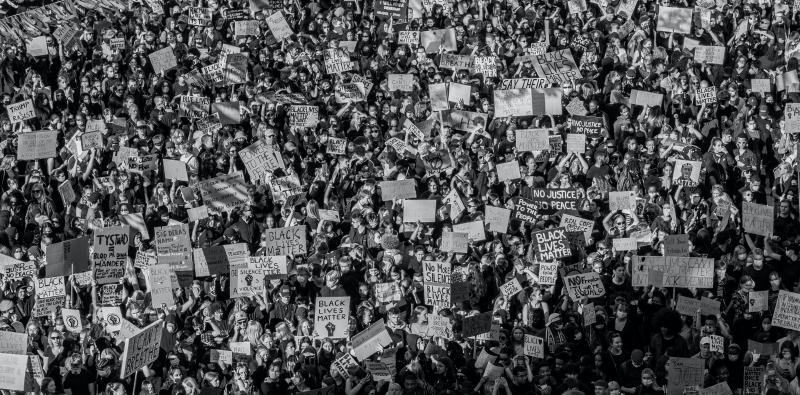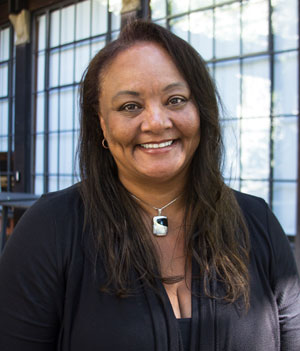
Sandra Bass, Ph.D. is an Associate Dean of Students and Director of the Public Service Center at UC Berkeley. She has worked on women’s leadership, girls education and reproductive health in sub-Saharan Africa and as a faculty member in criminology and political science at the University of Maryland. She is teaching The Politics of “WE”: Is America Still Possible? with us in fall 2021.
 At a time so rife with division is “we” really possible?
At a time so rife with division is “we” really possible?
I believe “we” is possible because we make it possible. It requires us to confront some of our own challenges and biases, and to be willing to be open in the presence of others in ways that we aren't necessarily taught. To be fully inclusive, to want to build a bigger “we”, to see the humanity in people we don't agree with is a conscious process. “We” is possible, but it's work.
Do you ever feel discouraged?
All the time. But this is what social change and progress has always looked like. The work that I do at the university involves working with a lot of young folks who are just amazing. I love their energy, their optimism and their passion, and I want to retain that. I also want to give them some perspective about what it means to be in the battle for the long haul. The reality is that there's often a decades-long lead up to social change. I give my students the context that people have been carrying that same water over the past 20 or 30 or 40 years. They were moving it forward even if they themselves never got to quench their thirst. I’ve had a lot of contact with those who’ve stayed in the struggle since the 60s and 70s. The people who’ve walked that path and lived it. They don’t feel hopeless or demoralized, and I take strength from them.
That said, I think there's no question that when I look at where we are now and all these retrenchments, I sometimes feel anxious. For me, when I get frightened or feel despair, I can't think my way out of it, I have to do my way out of it. That’s the advice I give others. Do something. Do the small acts, which may feel like they have no impact, but you never know where they’re going to lead. It strengthens your spirit to stay in the fight.
It seems that being in motion for social change requires a different conception of time.
Absolutely. Being African American, I really resonate with how many people could never dream of having the life that I have. I have a good job. I got a PhD. There are people who did what they could in their time, so that someone like me and lots of others could be possible today.
Who are some lesser known figures who’ve inspired your work?
Margaret Wheatley is one. She runs this program called Warriors of the Human Spirit. She talks about how you need to stand where you are and serve those you are with — that you do the best that you can, and it may turn into something bigger or it may not. But in the context of doing the best that you can, you are living into a larger purpose. And then there was Grace Lee Boggs who was just fabulous. She spent her entire life in Detroit fighting for human and labor rights. She didn’t always know what would come from her efforts, but still she stayed. It’s a different way of thinking about your contribution to the world and what feeds you. It's not always about the outcomes. It’s about the journey.
What do you hope OLLI members take away from your course?
First, we’re going to highlight people doing the work to build a bigger “we” in some of the most challenging areas. We’ll talk about it at the grassroots level primarily, and some of it at the policy level. Members will get a really good grounding in the efforts.
Bigger picture, I think we're in a transgenerational moment. By that I mean there is a flattening of the generations that I don't think necessarily has occurred before — certainly not in my lifetime. Young people have lots of wisdom in large part because they live their lives so differently than we do and have access to different information and knowledge. What older adults have are rich and varied life experiences and the perspective and insights you gain from living through the various stages of life. To me, there's a real possibility to think about what we can do together across different age groups.
I also think this third chapter of life is so much fuller and richer than it probably has ever been before. Members will have a chance to explore what moves them to be in motion for social change and social justice, and to consider what they can do in their spheres of life, beyond what they may already be doing.